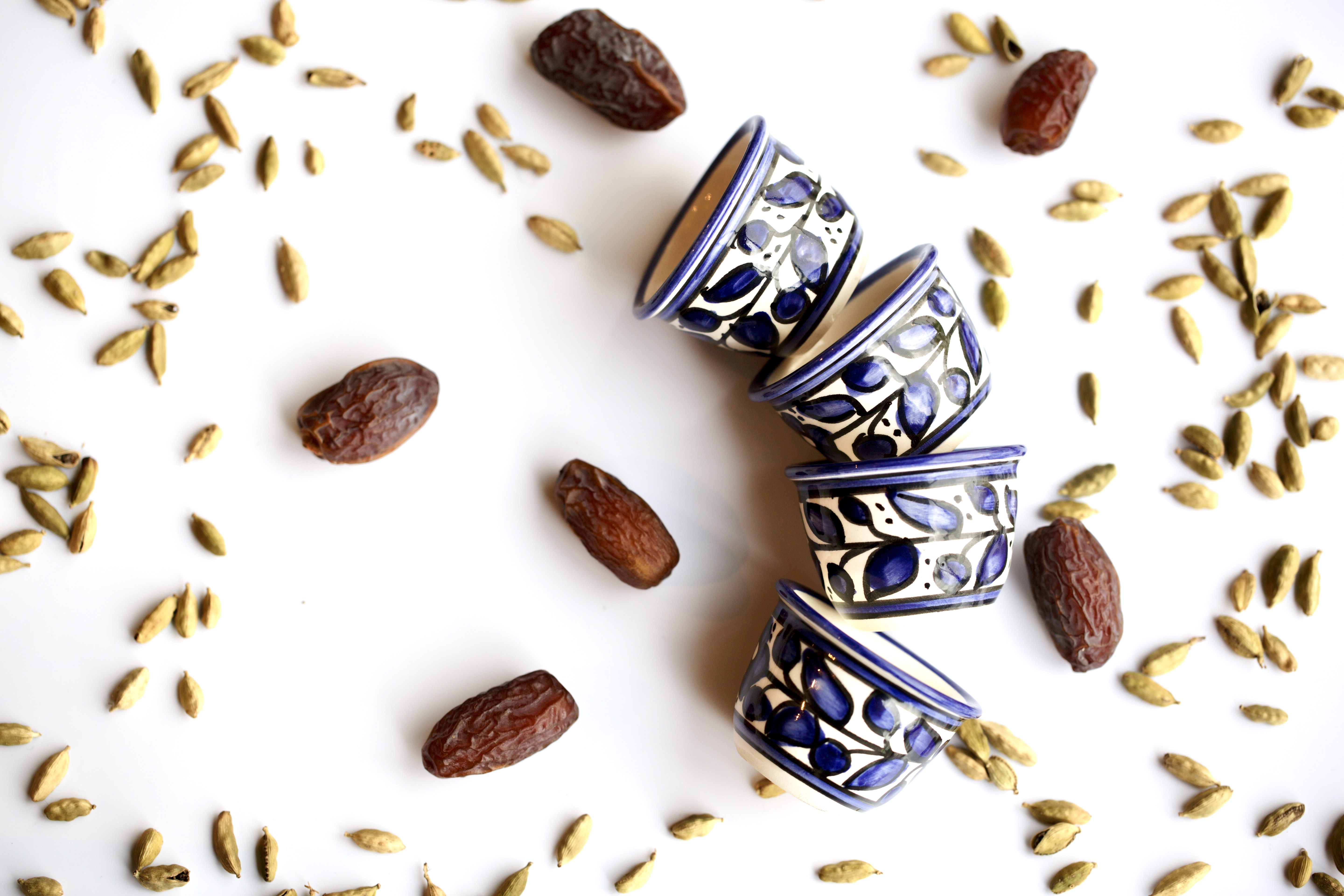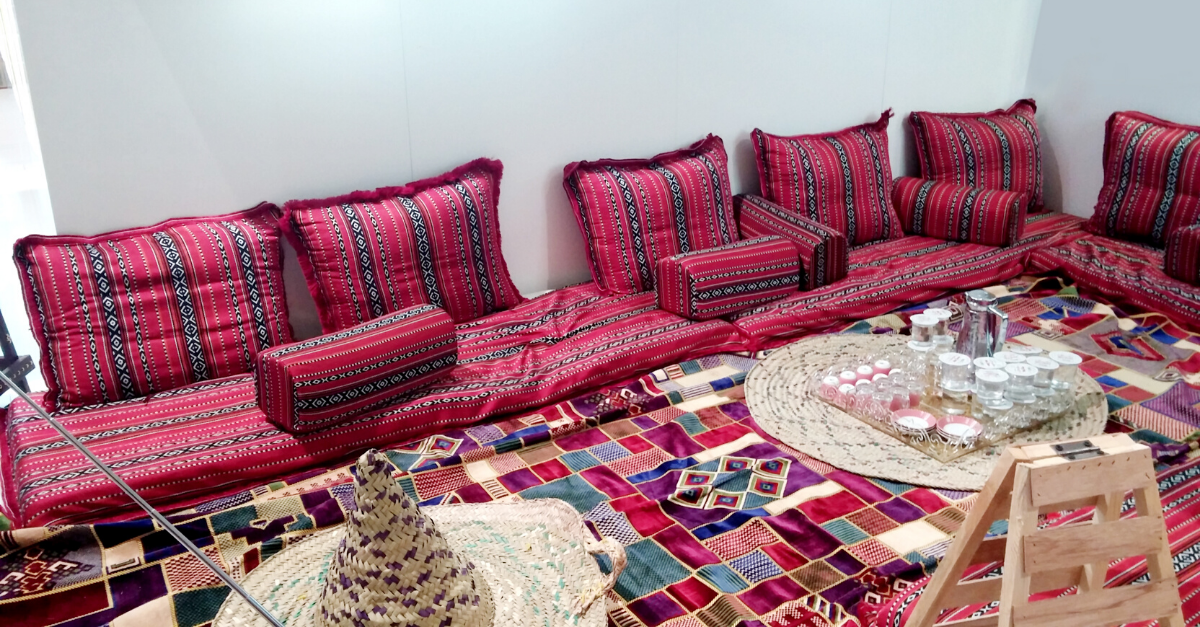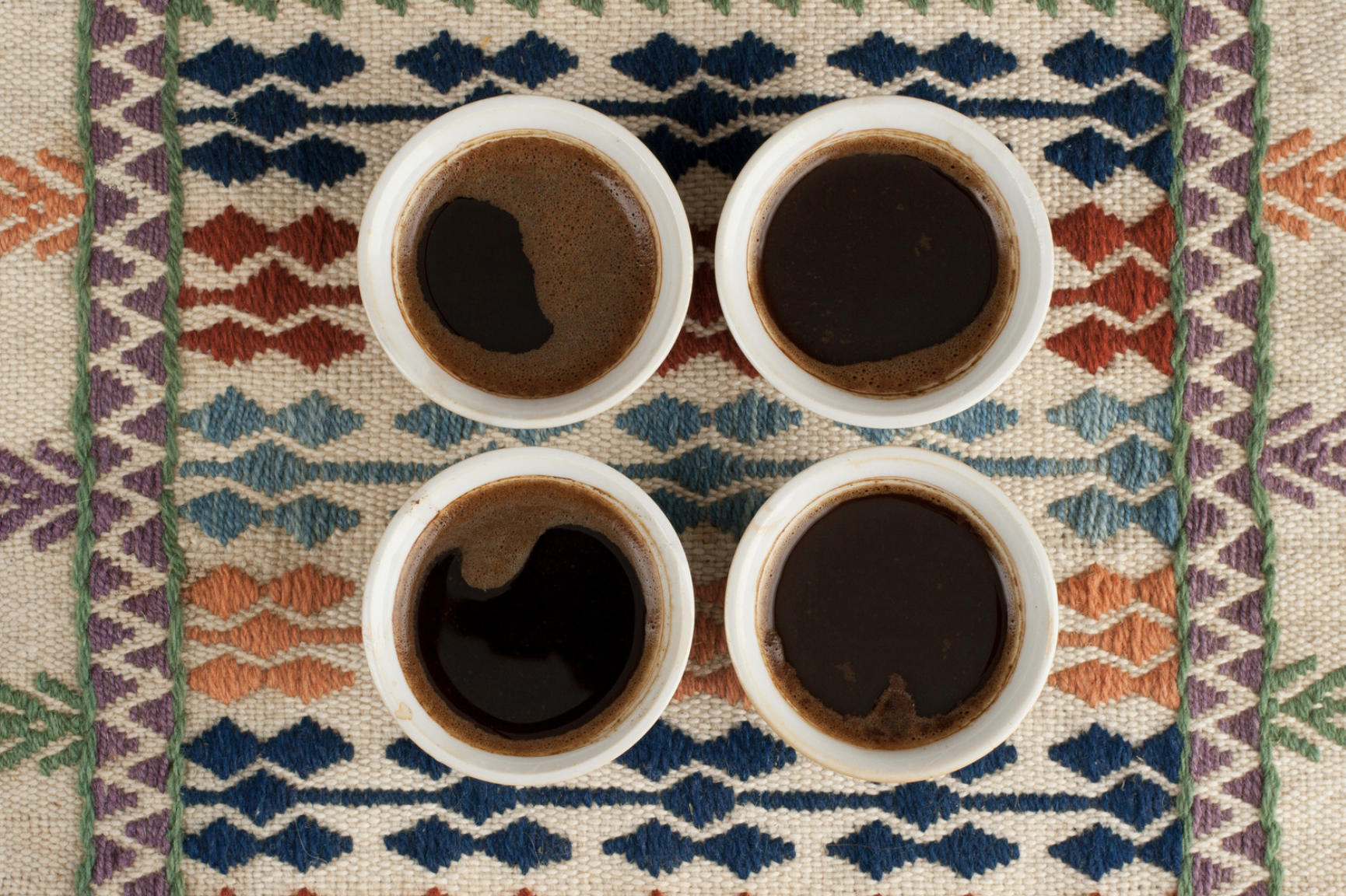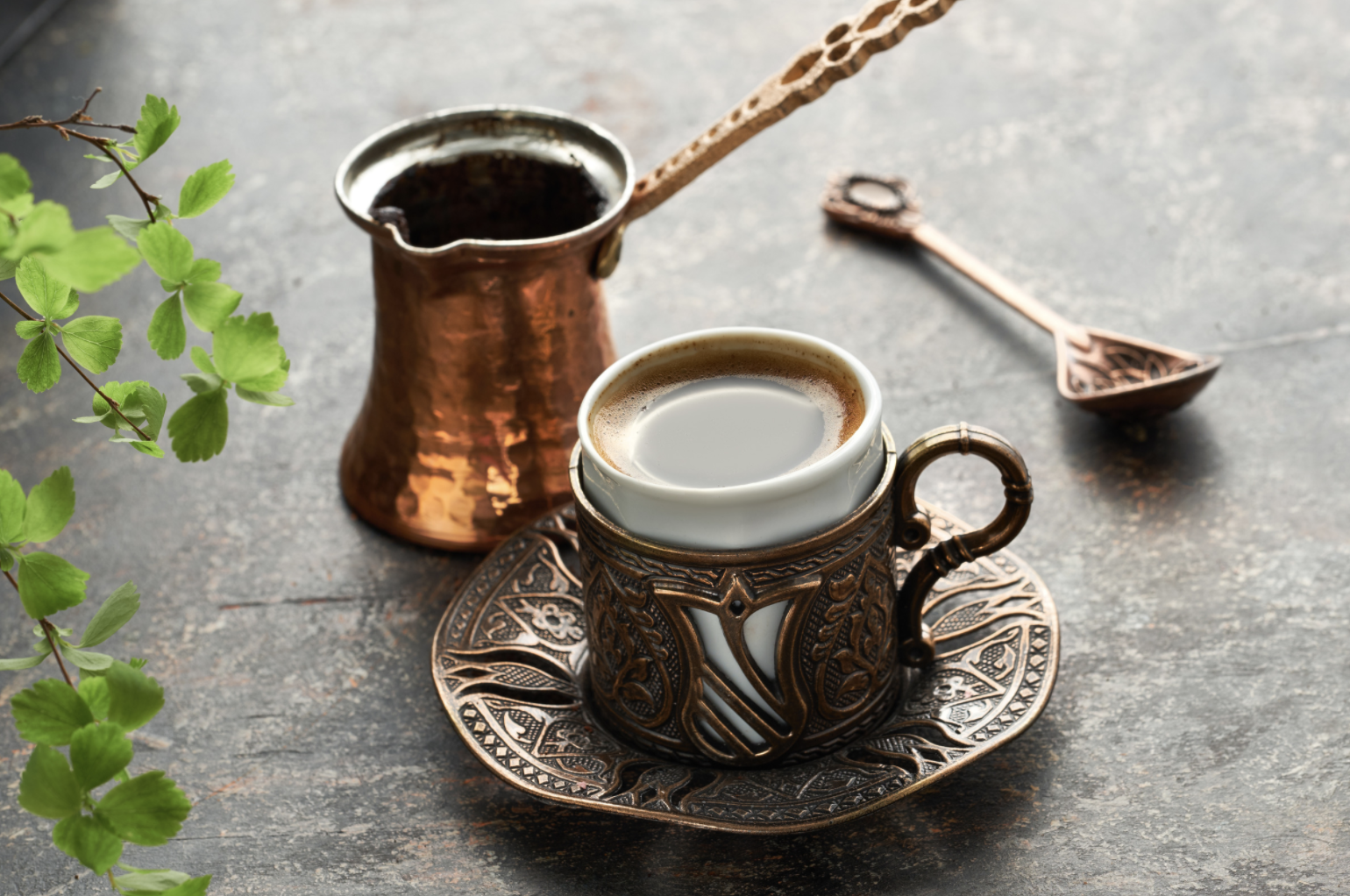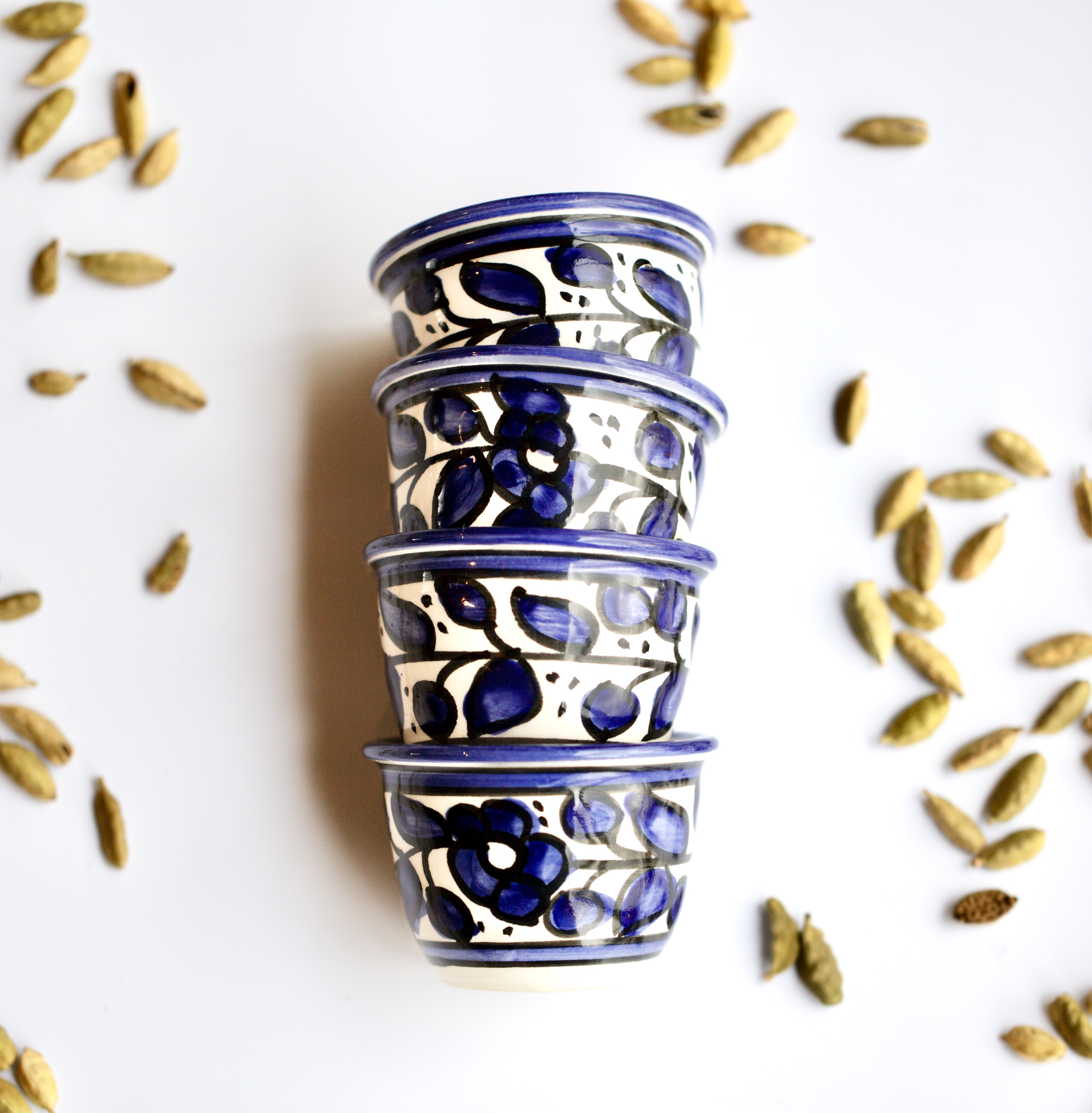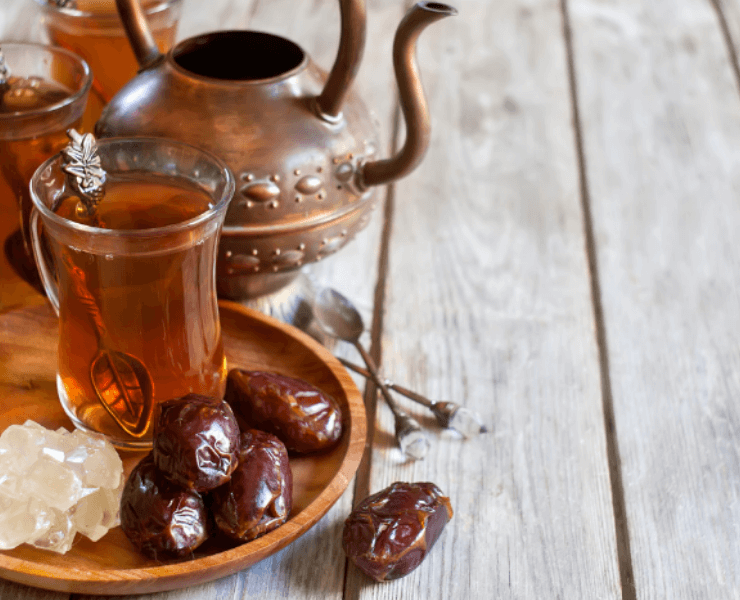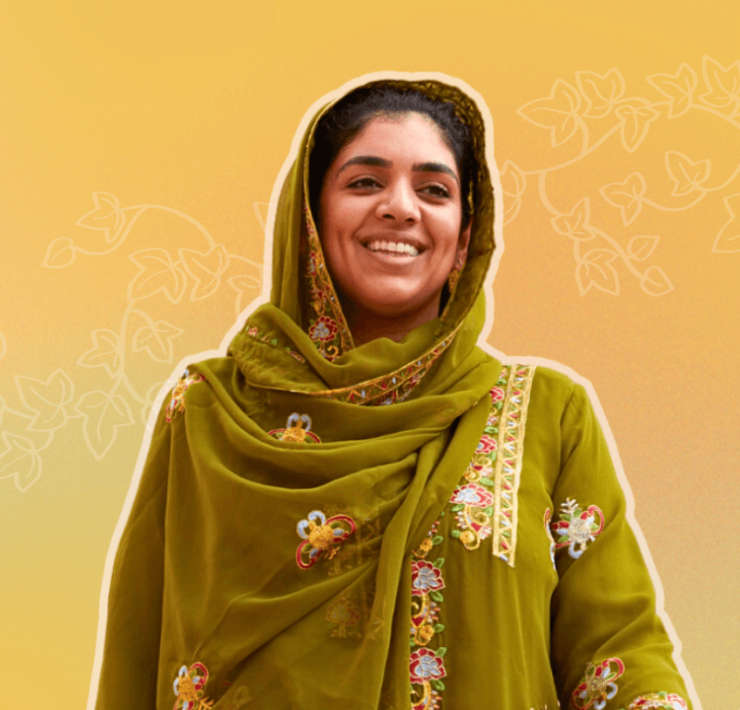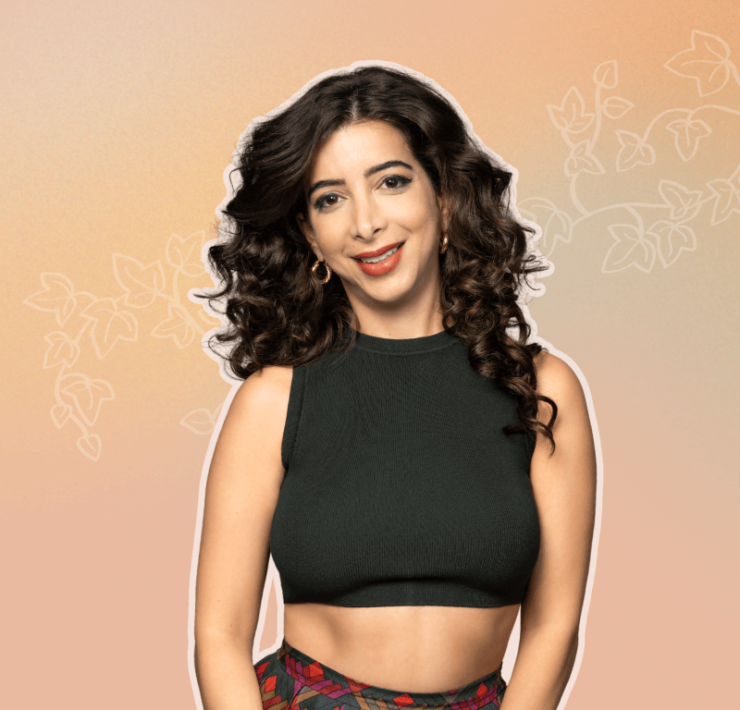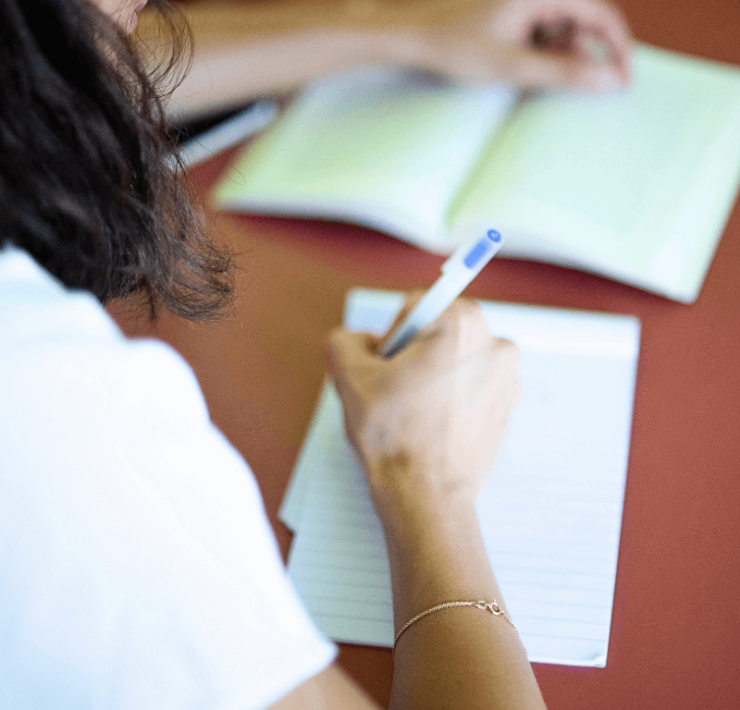If you’re a big coffee drinker, you’re likely aware that a huge amount of the coffee we drink comes from the Arabica bean. But how much do you really know about the origin of these coveted brown beans and the rituals and traditions associated with them?
Given that most Arabica coffee these days is produced in places like Kenya, Java and Colombia, you may be surprised to know that coffee actually originated in the Middle East – though the name Arabica does somewhat allude to its history. Scroll down for a few things you may not have known about the history of coffee and what makes Arabic coffee the cultural institution it is in the Middle East and North Africa.
1. The world has Yemen thank for coffee
The first coffee beans are believed to have been roasted and brewed in the southern Arabian Peninsula – Yemen, to be precise. Even the word ‘coffee’ can be traced back to the area. Coffee comes from the Dutch word, koffie, which emerged from the Turkish word, kahve, which originally came from the Arabic, qahwa, which is still used in the region today. The evolution of the word reflects the spread of coffee along the Silk Routes from South Arabia to Europe in the 16th century.
 For more on coffee in Yemen, check out our review of The Monk of Mokha, which tells the riveting story of a Yemeni-American seeking to revive his ancestral home’s ancient coffee trade.
For more on coffee in Yemen, check out our review of The Monk of Mokha, which tells the riveting story of a Yemeni-American seeking to revive his ancestral home’s ancient coffee trade.
2. It’s not the beans that distinguish Arabic coffee
Arabic coffee is a famous cultural symbol across the Middle East and North Africa. Many people assume that what makes Arabic coffee different to the coffee consumed elsewhere in the world is the type of bean used, but this is not the case. It uses the same Arabica bean we find in our espressos and caramel lattes, but the distinct methods of preparation and added flavours are what make it unique.
Arabic coffee is boiled, filtered and (usually) brewed with cardamom. Its strength and colour varies across the region – for example, in the Levant, Arabic coffee is usually thick and dark in colour, while in parts of the Arabian Peninsula such as the Nejd and the Hejaz, saffron is added to give it a paler, golden colour. Cloves and cinnamon are also sometimes added for extra flavour.
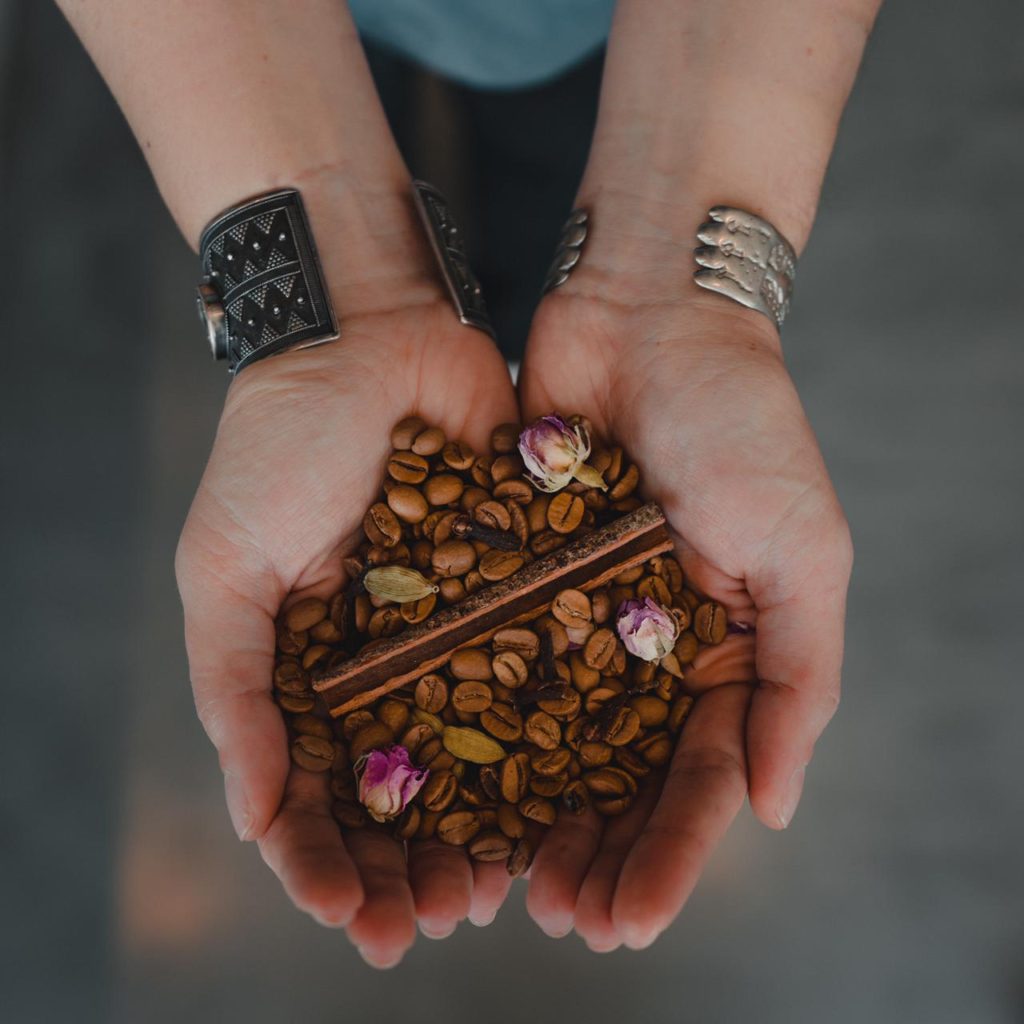 Click to shop our fair trade, specialty Yemeni coffee in the Pink Jinn Souq ✨
Click to shop our fair trade, specialty Yemeni coffee in the Pink Jinn Souq ✨
3. The ritual of Arabic coffee is integral to social and community relations
While we often rush our morning cup in our hurry to get to work or start the day, the preparation of coffee in the Middle East and North Africa is slower – it’s a ritual, a ceremonial practice that’s crucial to bringing families and communities together. This is partly why UNESCO officially declared Arabic coffee part of the Intangible Cultural Heritage of the region.
Arabic coffee is a unifier: it’s enjoyed by men and women alike across all sections of society. Families have passed down the practice over centuries and generations, and the effort that goes into every cup gives a very real sense of its cultural significance.
The best beans are carefully selected, roasted and ground. Water is added, it’s brewed over a flame then served in small, decorative cups called finjān, sometimes from a tall, elegant coffee pot called a dallah. The coffee itself is bitter and strong, usually served without sugar but accompanied by something sweet to balance out the flavour – often sweet, sticky dates.
 Shop the Souq: Arabic coffee cups hand painted in Khalil, Palestine
Shop the Souq: Arabic coffee cups hand painted in Khalil, Palestine
4. A symbol of hospitality and generosity
Arabic hospitality is famous worldwide and coffee is a hugely important part of that experience. Coffee is prepared and served to guests, whether at a family gathering or a business meeting. Guests are generally expected to drink between one and three cups, and it is customary to give the empty cup a small shake with the wrist and set it down when you’ve had enough.
Guests will usually be received for coffee and dates in the majlis, a room lined with sofas or floor cushions which exists for the specific purpose of meetings and gatherings. Most homes (and even many offices and government ministries) have a majlis, particularly in the Gulf. Sometimes a house will have two – one for men and one for women. Coffee – and of course, the majlis – is especially important during festivities and celebrations like Eid, along with other family and community gatherings.
5. Coffee house culture
The coffee house – or the maqha – has served as a meeting point for friends, colleagues and communities (predominantly men) in the Arab World for centuries, and has often been the key location of social interactions and political debate. People talk, share news and information, watch performances, play games like chess and backgammon, and of course, discuss the news of the day in the coffee house. Business is done over coffee, contracts are negotiated, marriages arranged, political activities planned…
Coffee houses still serve this function in the Middle East and North Africa today to an extent. However, as western influences spread, so does the reach of Starbucks and other American and European café chains, and some – particularly younger – Arabs are forgoing their morning qahwa for a latte or a cappuccino instead.
Yet the institution that is Arabic coffee is in no danger of dying out. One only has to attend a business meeting in the region, a wedding, a family dinner, a Ramadan iftar, or just a spontaneous meeting at a friend’s house to see that the tradition of Arabic coffee is well and truly alive, and is as important as ever for bringing people together.
In the West, we could learn a lot from the ritual of Arabic coffee; Like the importance of taking things slowly, appreciating the simple things in life – whether the rich, bitter flavour of a lovingly brewed bean or a chance to be present in the moment with our friends and family.
 Don’t miss our KHALIL Arabic coffee cups, hand painted by Palestinian artisans in Hebron. 1/3 of the profits go to the Hands Up Foundation, providing humanitarian assistance to victims of the Syrian conflict.
Don’t miss our KHALIL Arabic coffee cups, hand painted by Palestinian artisans in Hebron. 1/3 of the profits go to the Hands Up Foundation, providing humanitarian assistance to victims of the Syrian conflict.
If you enjoyed this, you might also like:
Khaleeji morning rituals: Sweet ‘Karak’ tea recipe
10 essential ingredients for Middle Eastern sweets and desserts
Why learning about other cultures is the best way to change the world


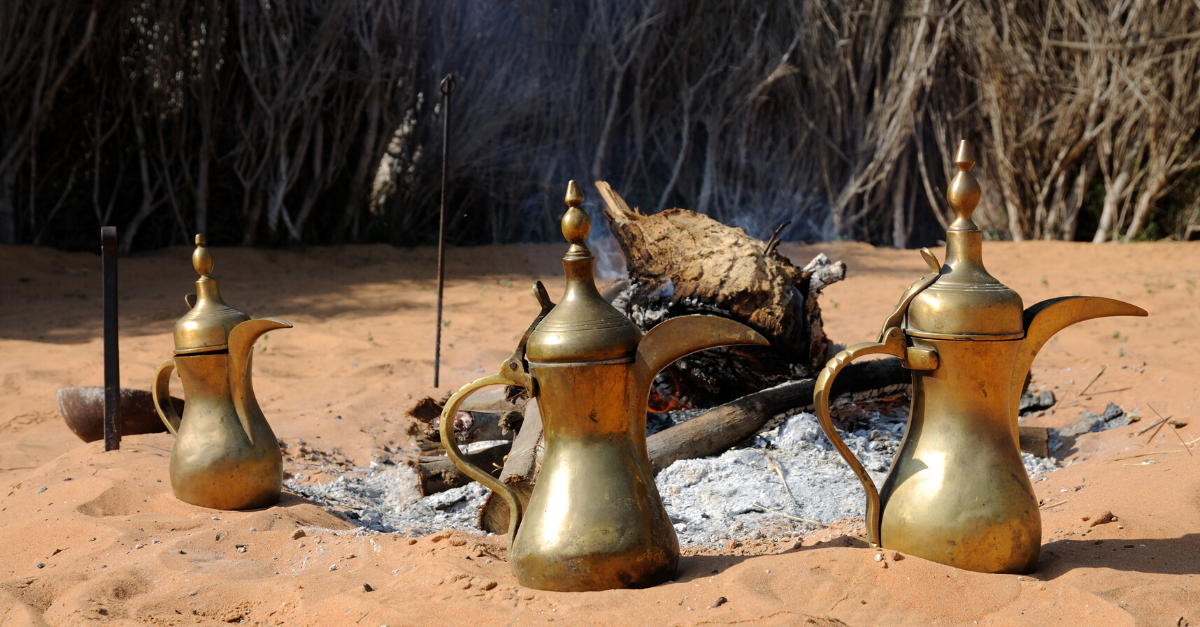
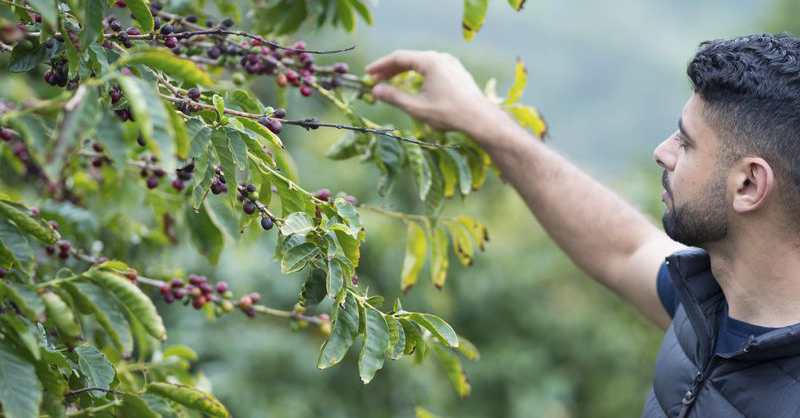 For more on coffee in Yemen, check out our review of The Monk of Mokha, which tells the riveting story of a Yemeni-American seeking to revive his ancestral home’s ancient coffee trade.
For more on coffee in Yemen, check out our review of The Monk of Mokha, which tells the riveting story of a Yemeni-American seeking to revive his ancestral home’s ancient coffee trade.